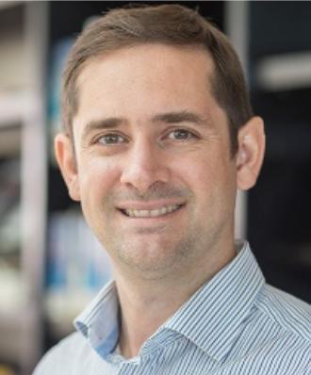Exploring the Potentials of Spin-Orbitronics
The ever-increasing demand for information technology for power-efficient components has led to the search for alternative solutions to mainstream microelectronics. In this context, spintronics devices stand out as competitive candidates, especially for memory and logic applications. A promising route harvests unconventional transport properties arising from spin-orbit coupling in magnetic heterostructures lacking inversion symmetry.
This lecture will provide a theoretical perspective of the advancement of the fascinating field of spin-orbitronics, focusing on two emblematic mechanisms: the spin-orbit torque and the Dzyaloshinskii-Moriya interaction. I will examine what theory and materials modeling can tell us about these two effects, and what future research directions they open. I will first introduce key concepts in spintronics, such as spin currents and spin-transfer torque, and show how spin-orbit coupling enables new physical effects of high interest for potential applications. I will present standard phenomenological descriptions of these two effects, spin-orbit torque and Dzyaloshinskii-Moriya interaction, determine the symmetry rules that govern them, and give a broad overview of the current state-of-the-art of the field from experimental and theoretical standpoints. Finally, I will explore how spin-orbitronics takes a completely new form in materials possessing low crystalline symmetries, such as Fe3GeTe2, CuPt/CoPt bilayers, and noncollinear antiferromagnets (e.g., Mn3Sn).
Date and Time
Location
Hosts
Registration
-
 Add Event to Calendar
Add Event to Calendar
Loading virtual attendance info...
- 1420 Austin Bluffs Pkwy
- Colorado Springs, Colorado
- United States 80918
- Building: Osborne Center for Science and Engineering
- Room Number: A204
- Contact Event Host
- Co-sponsored by UCCS
Speakers
 Aurélien Manchon of Aix-Marseille University
Aurélien Manchon of Aix-Marseille University
Exploring the Potentials of Spin-Orbitronics
The ever-increasing demand for information technology for power-efficient components has led to the search for alternative solutions to mainstream microelectronics. In this context, spintronics devices stand out as competitive candidates, especially for memory and logic applications. A promising route harvests unconventional transport properties arising from spin-orbit coupling in magnetic heterostructures lacking inversion symmetry.
This lecture will provide a theoretical perspective of the advancement of the fascinating field of spin-orbitronics, focusing on two emblematic mechanisms: the spin-orbit torque and the Dzyaloshinskii-Moriya interaction. I will examine what theory and materials modeling can tell us about these two effects, and what future research directions they open. I will first introduce key concepts in spintronics, such as spin currents and spin-transfer torque, and show how spin-orbit coupling enables new physical effects of high interest for potential applications. I will present standard phenomenological descriptions of these two effects, spin-orbit torque and Dzyaloshinskii-Moriya interaction, determine the symmetry rules that govern them, and give a broad overview of the current state-of-the-art of the field from experimental and theoretical standpoints. Finally, I will explore how spin-orbitronics takes a completely new form in materials possessing low crystalline symmetries, such as Fe3GeTe2, CuPt/CoPt bilayers, and noncollinear antiferromagnets (e.g., Mn3Sn).
Biography:
Aurélien Manchon received the M.Eng. degree from the École Polytechnique, Palaiseau, France,
in 2004, and the Ph.D. degree in physics from Université Joseph Fourier and Spintec Laboratory,
Grenoble, France, in 2007.
He was a Post-Doctoral Fellow at the University of Missouri, Columbia, MO, USA, and the
University of Arizona, Tucson, AZ, USA. He was an Assistant Professor from 2009 to 2015 and an
Associate Professor from 2015 to 2019 of materials science and engineering at the King Abdullah
University of Science and Technology, Thuwal, Saudi Arabia. He is a Professor of physics at the
Interdisciplinary Center for Nanoscience of Marseille, Aix-Marseille University, Marseille, France.
His research focuses on theoretical spintronics and aims at identifying novel mechanisms that
can be used to operate low-power, ultrafast, spin-based devices. His research interests include
spin-orbit coupled transport, chiral magnetism, antiferromagnets, and ultrafast dynamics.
Email:
Address:Aix-Marseille University, , France

